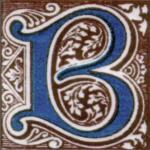L’articolo è stato aggiunto alla lista dei desideri
IBS.it, l'altro eCommerce
Analogical discoveries. Identifying similarities to solve problems
Cliccando su “Conferma” dichiari che il contenuto da te inserito è conforme alle Condizioni Generali d’Uso del Sito ed alle Linee Guida sui Contenuti Vietati. Puoi rileggere e modificare e successivamente confermare il tuo contenuto. Tra poche ore lo troverai online (in caso contrario verifica la conformità del contenuto alle policy del Sito).
Grazie per la tua recensione!
Tra poche ore la vedrai online (in caso contrario verifica la conformità del testo alle nostre linee guida). Dopo la pubblicazione per te +4 punti









Tutti i formati ed edizioni
Promo attive (1)
Indice

Sometimes the solution of a novel problem is achieved by transferring a strategy derived from a familiar situation which is similar to that problem, even though it concerns a different domain. This is the case of the so-called ´analogical problem-solving . Analogical problem-solving is a process of which artistic intuition, historical reconstruction, scientific discovery, and technological invention take advantage; it occurs in everyday thinking and in instruction where it allows to clarify concepts which are difficult to understand and to foster the development of creativity. It is an interesting ´crossroad both with intersections of some main theoretical constructs of psychology and with an overlapping of various mental functions. The book reports a series of experimental investigations whose aims were threefold. They were designed to assess empirically the influence exerted on analogical problem-solving by factors which research had neglected, to give a detailed picture of the processes underlying analogical problem-solving, and to test the psychological reality of some theoretical constructs.
L'articolo è stato aggiunto al carrello
L’articolo è stato aggiunto alla lista dei desideri
Siamo spiacenti si è verificato un errore imprevisto, la preghiamo di riprovare.
Verrai avvisato via email sulle novità di Nome Autore

